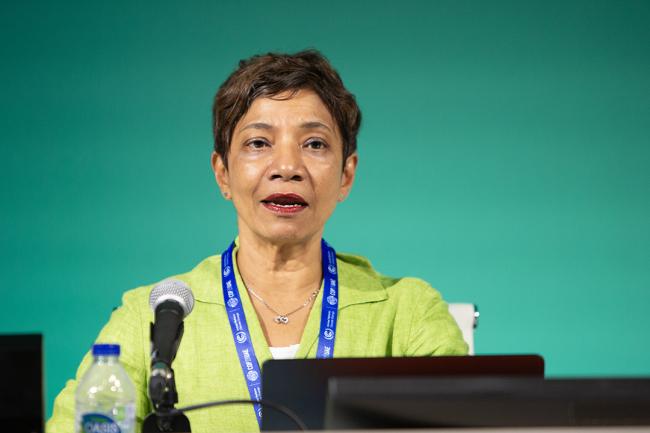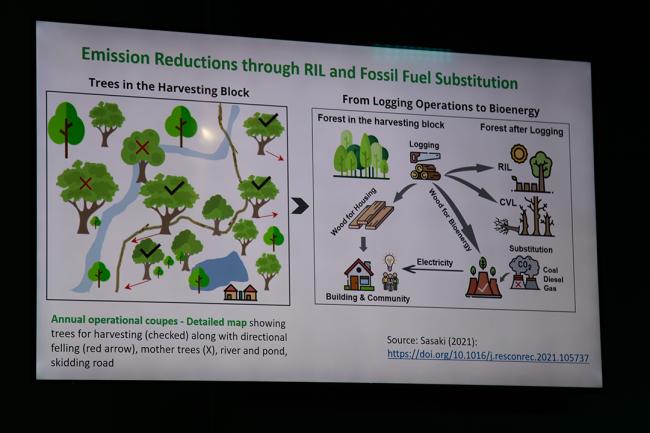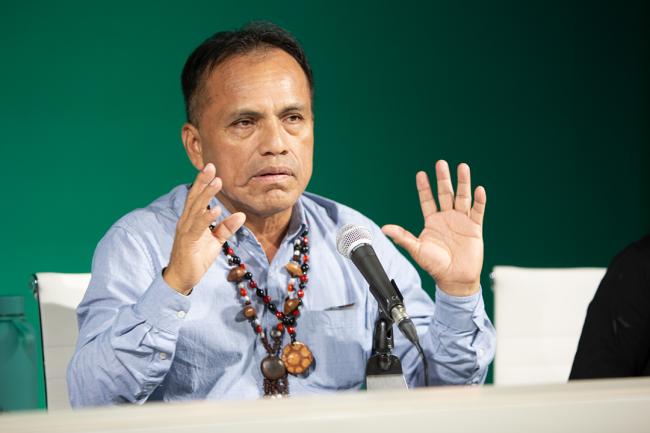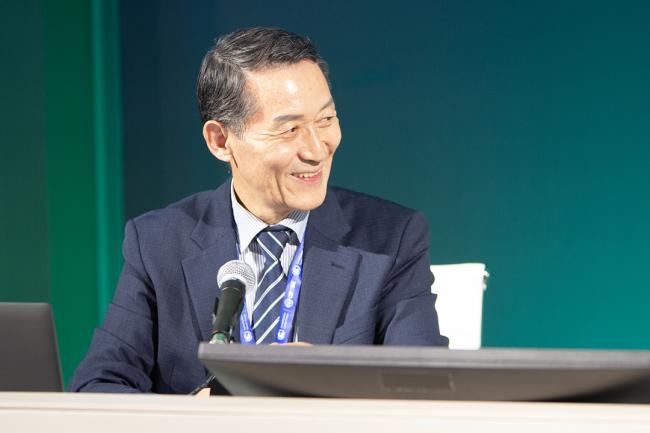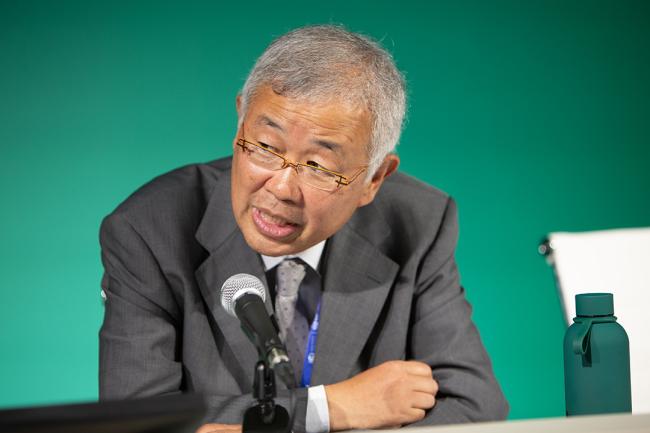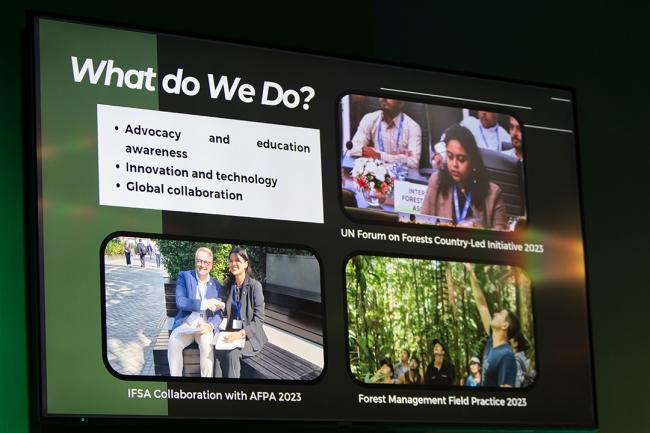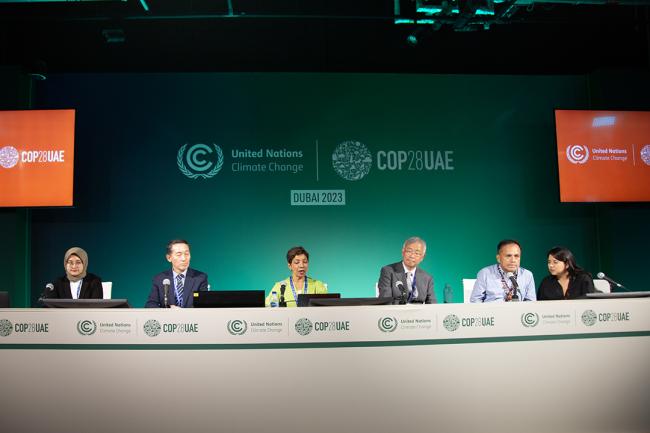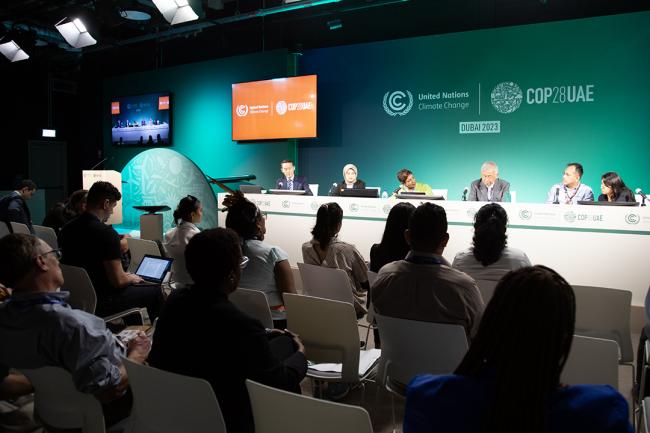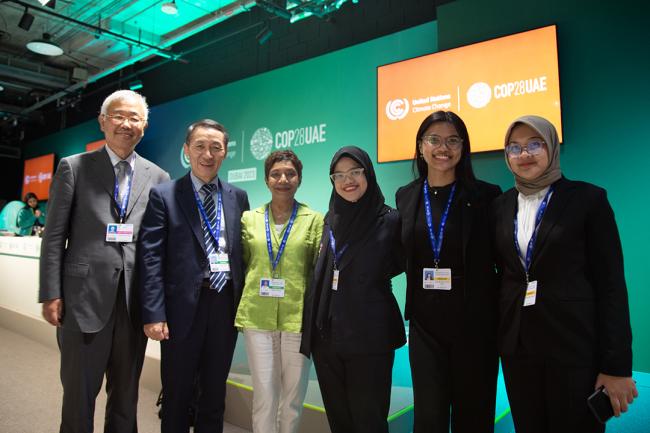About
Forest-based solutions play a vital role in supporting climate mitigation, adaptation, and conservation strategies, biodiversity, and the livelihoods of those who depend on forest resources. This event underscored the need for stronger investment and the importance of international partnerships for sustainable forest management.
Tropical forests are vital for climate change mitigation and adaptation, storing immense amounts of carbon and contributing significantly to global biodiversity. However, deforestation poses a growing threat to efforts to conserve the natural capital that tropical forests provide in addressing climate change, as well as a threat to those whose livelihoods depend on them. This event, co-organized by the International Tropical Timber Organization (ITTO), the Forestry and Forest Products Research Institute (FFPRI) of Japan, and the Confederation of Amazonian Nationalities of Peru (CONAP), addressed the vital role of forest-based solutions in combating climate change. It also underscored the urgent need to establish sustainable financial mechanisms to support forest-based climate change adaptation, mitigation, and biodiversity conservation.
The event kicked off with opening remarks from Sheam Satkuru, Executive Director, ITTO, who moderated the event and underscored the shared commitment of the panelists to tropical forest management. Implementing climate finance for tropical forests, she stressed, is “of paramount importance” for climate change adaptation, mitigation, and conservation, as are efforts to diminish deforestation, optimize forest management practices, and safeguard forests for Indigenous and forest-dependent communities. She noted the challenges of attracting investment to maintain tropical forests due to perceived or actual risks by investors and the need for blended finance models that leverage public and private capital to secure investments to implement forest-based solutions.
Oseas Barbarán Sánchez, President, CONAP, spoke about the importance of direct climate financing for Indigenous Peoples. He underscored the importance of the international community in providing direct funding to and access by Indigenous People’s organizations that have a successful track record for managing their own cultural resources in ways that support the sustainable development and resilience of the Amazon. He noted that CONAP-Peru is working with the country’s Ministry of the Environment and the National Registry of Mitigation Measures to provide direct authority to Indigenous Peoples to sustainably manage the Amazon forest in ways that avoid deforestation, increase its resilience and support the cultures and well-being of Indigenous Peoples that live in the territory. In closing, he spoke proudly of his community and that “we are river people. We live in nature, we are nature, and we need to take care of it” through tropical forest management that also addresses climate change.
Hwan-ok Ma, ITTO, discussed the role of nature-based solutions for carbon emission reduction and timber production enhancement through sustainable forest management (SFM). He noted that the United Nations Environment Assembly (UNEA) formally adopted a definition of nature-based solutions in 2022, which affirms the vital role they play in managing, protecting, conserving, restoring, and sustainably using ecosystems in ways that address environmental challenges while supporting human well-being. He discussed an ITTO pilot programme that promotes legal and sustainable supply chains, citing an example project on sustainable production of teak timber in the Greater Mekong sub-region that provides upper upper, intermediate, and downstream supply chain support for producers and consumers through sustainable harvesting practices and certification programmes. He concluded by highlighting the mitigation and biodiversity benefits of this programme that also supports poverty reduction and social inclusion, specifically of Indigenous Peoples through community-based forest management practices.
Yasumasa Hirata, FFPRI, Japan, spoke about the forests' synergistic potential of the adaptation and mitigation of forests for addressing climate change through SFM. He focused on the Reducing Emissions from Deforestation and forest Degradation (REDD+) approach and its potential for reducing emissions stemming from the agriculture, forestry and other land use sectors, which accounts for 23% of global greenhouse gas emissions. He also highlighted the Joint Crediting Mechanism (JCM), led by Japan alongside 28 partner countries, that has pioneered mechanisms under Article 6 of the Paris Agreement to support adaptation and mitigation efforts through carbon sequestering projects, erosion control technology, and conservation practices. He nodded to ongoing efforts of Japan and partner countries to reduce deforestation and forest degradation through JCM-REDD+ projects, but stressed that more financing is needed to protect forests.
Faiha Azka Azzahira, President, IFSA Local Committee, Indonesia, spoke on the power of youth for advancing SFM through advocacy and educational awareness, global collaboration, and the promotion of innovation and technology. She emphasized that “the role of youth is pivotal” and that they “are agents of change” who play a crucial role in shaping the future of forest management. She noted the tension between the role tropical forests play in maintaining ecological equilibrium, addressing climate change, and supporting biodiversity, but she also stressed they are under unprecedented pressure from deforestation and the extraction of forest goods and services. She concluded by emphasizing the importance of strengthening cooperation with global and local partners for SFM to work effectively, and for projects to engage youth.
Suneetha Subramanian, United Nations University – Institute for the Advanced Study of Sustainability (UNU-IAS), joined by video to share experiences and lessons from women in ITTO projects working to advance forest landscape restoration (FLR). She reported on 14 case studies that assessed projects against six principles of FLR and gender mainstreaming. She noted that while almost all the projects incorporated FLR principles and engaged in participatory approaches that embraced community perspectives, challenges remain in regard to a lack of capacity, awareness, and information surrounding FLR, as well as disputes between multiple stakeholders. She closed by emphasizing the importance of consultation and sensitivity to local contexts when implementing FLR and recommended transdisciplinary, solutions-focused approaches to projects.
The panel concluded with a Q&A from the audience around how to structure finance for SFM in ways that balance the objectives of carbon market mechanisms with biodiversity concerns, how to address forest regeneration in heavily damaged forested regions, and the business case for SFM.
Organizer: The International Tropical Timber Organization (ITTO), The Forestry and Forest Products Research Institute (FFPRI) of Japan, and The Confederation of Amazonian Nationalities of Peru (CONAP)
Contact: Ramon Carrillo: carrillo@itto.int I MA Hwan-Ok: ma@itto.int
For more information: https://www.itto.int/
A recording of this side event is available here.
To receive free coverage of global environmental events delivered to your inbox, subscribe to the ENB Update newsletter.
All ENB photos are free to use with attribution. For this COP 28 side event, please use: Photo by IISD/ENB | Angeles Estrada Vigil

